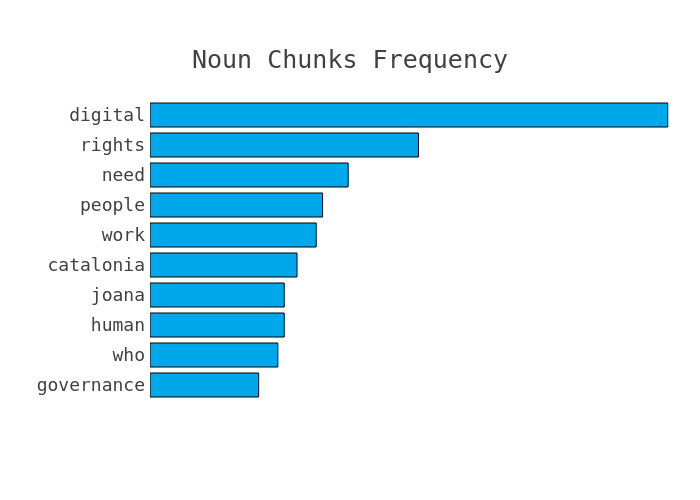Digital rights and responsibilities: from local to global
9 Dec 2021 14:05h - 15:35h
Event report
It has been 70 years since the Universal Declaration for Human Rights was drafted. The world has come a long way since then. ICT has become ever more imperative in our lives today, especially after the pandemic.Two years ago, the Government of Catalonia coordinated the development of the Charter of Digital Rights and Responsibilities. It is an open innovation project where activists, public authorities, businesses, lawyers, researchers, international experts, other governments have contributed to keeping with the multistakeholder model of the internet.
The most important point in the charter is to have universal access to the internet. Other things include bridging the digital talent gap and enabling more women in ICT.
Speaking of worker rights, even the GDPR does not fully protect them. The GDPR does not sufficiently cover workers on knowledge about when we are subjected to algorithmic inferences, profiles, predictions, possibility analysis, even if it does not affect our personal data directly. For example, if data influence has proved that customers find an accent from an upper-class area of Barcelona much more trustworthy than anything else, then someone seeking a job from another area in Barcelona might not even see the job advertisement on the internet and with automated hiring systems may never make it to the list of applicants. This can result in very narrow labour markets, i.e., exclusive labour markets. These algorithmic influences are in contrast with Article 18 of the Universal Declaration of Human Rights which says that everyone has the freedom of thought.
Digital literacy in people outside of this sector is still low and capacity development is needed so that workers know how to defend their rights in this digital age. Therefore, digital rights charters must be aligned with this capacity development for stakeholders. They should be drafted with stakeholders so that all voices can be heard.
The session concluded that it is time for a set of global conventions related to digitalisation that can improve connectivity as a mandate and also enable the digital transformation of various sectors. Moreover, the charter should push for greater assessment tools and transparency to the end user. A Universal Declaration of Digital Human Rights should be formulated, hopefully in the next five years, which will bring universal access to the internet and universal digital education that takes into account capacity development for both citizens and those generating digital tools, such as corporations, companies, governments, etc. to prevent algorithmic influence and manipulation.
By Mili Semlani
Session in numbers and graphs




Automated summary
Diplo’s AI Lab experiments with automated summaries generated from the IGF sessions. They will complement our traditional reporting. Please let us know if you would like to learn more about this experiment at ai@diplomacy.edu. The automated summary of this session can be found at this link.Related event

Internet Governance Forum (IGF) 2021
6 Dec 2021 10:00h - 10 Dec 2021 18:00h
Katowice, Poland and Online
